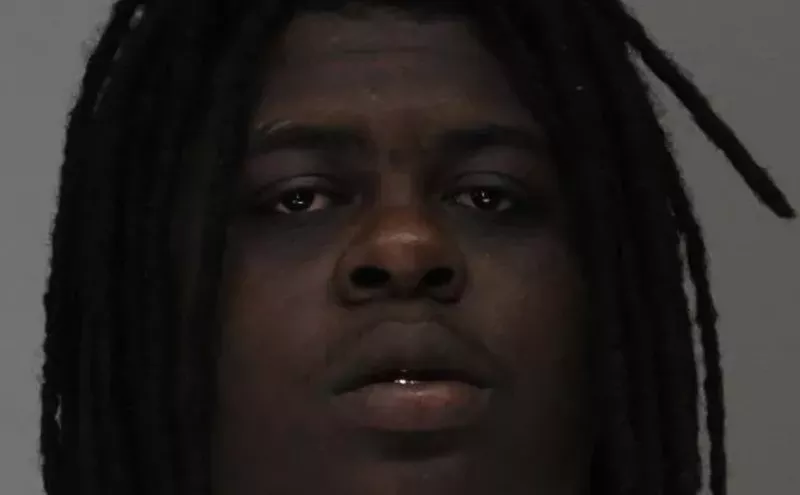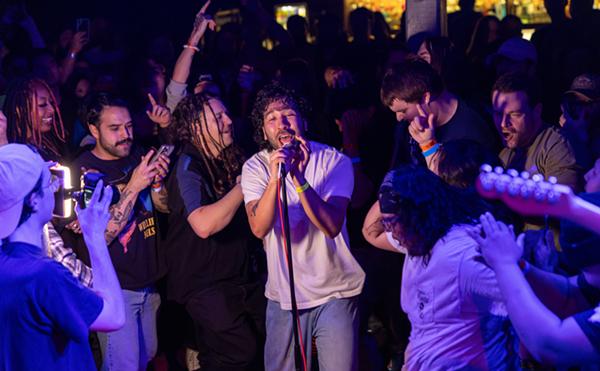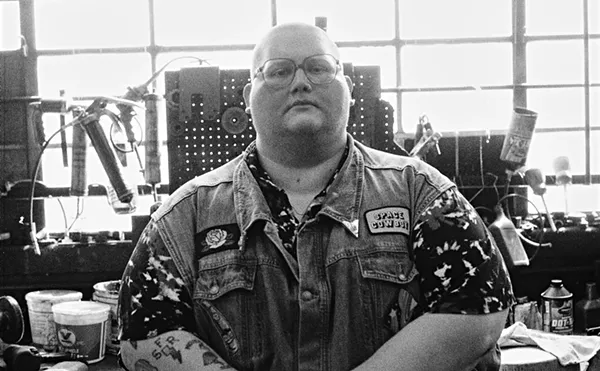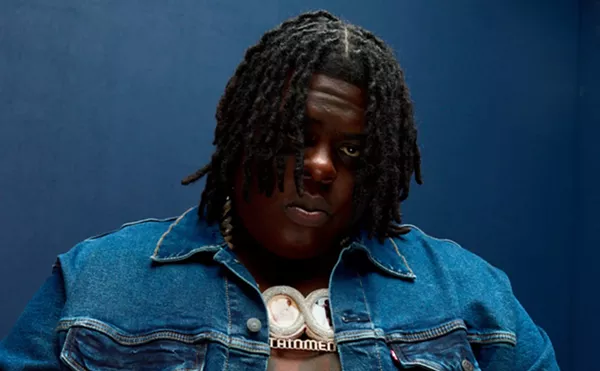Without question, there wasn't anyone more qualified to assess the skills of up-and-coming turntablists than the Invisibl Skratch Piklz. After all, QBert was the one who coined the term "turntablist" in the first place, only because he knew what he and his friends were doing was too different to fit under the definition of DJ. The members officially came together in 1995, yet despite their relative youth (all the members are around 30), the ISP have been practicing their art for about 15 years, give or take, since they were just starting high school. QBert can easily recall that time, when it would have been hard to imagine him being good enough to enter the DMC championships, let alone being asked to retire from them.
"I can remember my first competition," QBert, otherwise known as Rich Quitevis, says. "It was at a school dance, I was about 15, and everything went wrong. We didn't even practice, and me and my crew were up there and didn't even know how to mix -- all the beats were off, and our friends were laughing at us. But across the cafeteria was Mixmaster Mike doing his thing, still an unknown pretty much. We ate it hard, but Mike knew exactly what to do, and ever since then we've been tight. He pretty much taught me all the basics back then."
The basics of turntablism have been evolving since the early '80s, when Christian Marclay -- the first non-rap DJ to make an artform out of using a turntable -- began constructing avant-garde symphonies by compiling a variety of musical scores. Herbie Hancock wanted in and hit with Bill Laswell's production of Hancock's "Rock It." But it was the colorful street-friendly sounds of Cash Money, Jazzy Jeff, Juice, Joe Cooley, and Evil E that sounded so fresh when they first came on the scene. They all constructed their patchwork mixes by way of numerous records at their disposal -- the more obscure the better. Some even soaked their vinyl in water until the labels came off, so no one could figure out where they were getting their sounds. Instructional and educational records became popular for vocal sampling as well as drum-breaks from rare soul, funk, and jazz records. But heavy-metal guitar riffs or backwoods twang were never out of the question either. And they still aren't, especially if you've heard Mixmaster Mike's reinvention of Rush's "Tom Sawyer."
Though the typical DJ fuses songs at the seams and matches beats to form a continuous stream of music, it's the turntablist who fades the smooth flow and tight rhymes for a less predictable trip, and that's where the creativity comes in. They are skilled in the art of music and know how to divide it into beat segments, bars, counts with understanding breaks. The second-generation wheels-of-steel fanatics have been schooled well by those before them and moved it forward into a beautifully frenzied mess.
It goes without saying that Invisibl Skratch Piklz has innovated more styles of scratching, cutting, and beat-juggling than any other DJ collective around today -- except for maybe New York's X-Ecutioners and the Beat Junkies out of Los Angeles. Performing together or individually, the dynamic ISP team has the reputation for spinning acrobatics on wax and is notoriously undisputed in the hip-hop underground. Mixmaster Mike (a.k.a. Serial Wax Killer) is one of the most imitated DJs around, especially since he's crossed over into larger audiences with his skillful sound manipulations on his first solo release, Anti-Theft Device, and on the Beastie Boys' 1998 album Hello Nasty. Combined with the expertise of Shortkut (who's currently on tour with the Beat Junkies), D-Styles, and Yoga Frog, ISP's portfolio is hard to overlook, if not be intimidated by.
But as skilled as the other members are, QBert might be the best; it's not unusual for him to be showered with such praise as "the best ever" or "the greatest DJ." His fingerprints seem to be on every scratching historical moment to date, the kind of pioneer who takes something old and makes it unrecognizably new. He released his first album, Wave Twisters, in 1998 (on the interestingly named indie label Galactic Butt Hair) to much acclaim. Now, he's preparing a one-hour animation video that serves as a companion to the album; it will be shown this July at the first ever Skratchcon 2000 in San Francisco.
When QBert rolls through town, though, he'll have only D-Styles by his side. He says that it's a really rare performance nowadays for all five to play at the same time. "I just hope that the turntables don't skip and that people have a close enough view to see our hands and see that what we do is really physical and mental."
Many of the ISP's songs begin by scamming split-second snippets of beats from records like Battle Breaks, Gag Ball Breaks, Hee-Haw Brayks -- sound-effects records intended to be used solely for that purpose. "Those are a few of our favorite ones," he says. "There can be something like 2000 sounds on each one, so the possibilities are endless." Each record tries not to go over twelve minutes, otherwise the grooves become too thin to find the quick sample. "Say you have a magazine and you cut out a guy's head," he says. "And then you take another magazine and you cut out a guy's arm, and so forth, until you have a whole person. Collaging a song like that is just one way of doing a song. All I need to make a song is a tiny sample. And when we're on stage, it's like a complete rocket launch of scratching. We're like samurai tsunami on the turntables."
Basic necessities for performing begin with two turntables, a mixer, needles, records, and headphones. The chances for things to go wrong are as common as for your typical four-piece pop band; it's only the circumstances that waver. Instead of breaking a string or guitar chords shorting out, tables could be wobbly and can set the needle skimming across the wax, or the air could be really humid and make the records really slippery. "I think every show is a learning experience on how we can improve," says 30-year-old QBert.
And while it sometimes seems rehearsed, most are free to embellish their musical tales they tell or mock. When performing in a group, each member will assume different roles -- guitarist, drummer, bassist, or vocalist -- with their scratching mischief.
"Ninety percent of the time, it's freestyle when we practice," says QBert, who claims most of his influence comes from jazz but will study the style of anyone great. "But if we're preparing for a show, we'll pull the best freestyled parts and put those together. It's just like a jazz band jamming, but based in hip-hop. Right now, me and D-Styles are really into Stevie Ray Vaughan. We try to emulate his energy because he's all about patterns, tricks, and flows, and we do the same thing with a turntable."












